Why This Historic Luxury Villa From Only $250 A Night Is Perfect For An Idyllic European Getaway
20 min readI'm not sure about you, but testing my patience in long waiting lines at the gelato shop or bumping into sweaty bodies in narrow alleyways teeming with excursion groups while it's over 100 degrees outside is not exactly my idea of fun, much less relaxation. Early summer is indisputably the best time to be in …
The post Why This Historic Luxury Villa From Only $250 A Night Is Perfect For An Idyllic European Getaway appeared first on Travel Off Path.
Last Updated 2 hours ago
I’m not sure about you, but testing my patience in long waiting lines at the gelato shop or bumping into sweaty bodies in narrow alleyways teeming with excursion groups while it’s over 100 degrees outside is not exactly my idea of fun, much less relaxation.
Early summer is indisputably the best time to be in Portugal, especially if you’re traveling with friends or family: days are already balmy, but not scorching-hot, there are smaller crowds, though life is already in full bloom, and most importantly, prices are not as exorbitant as in August.
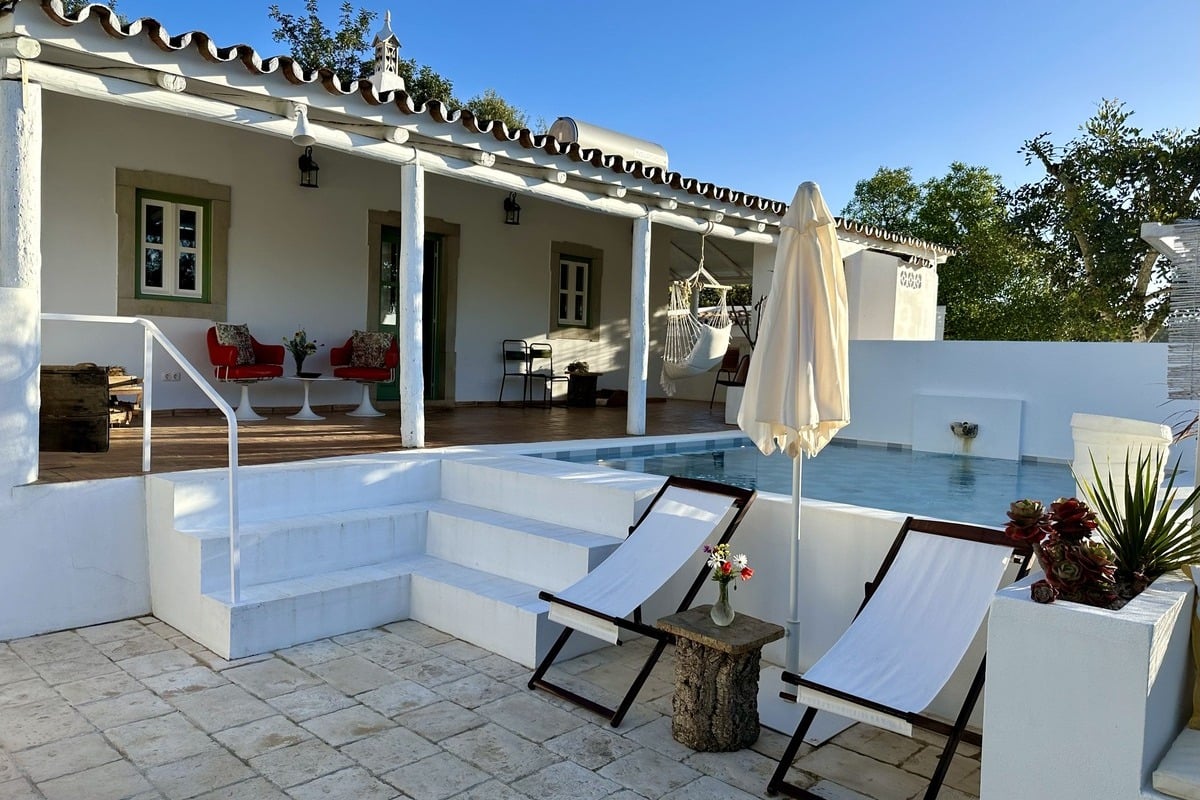

In fact, if you’re dreaming of an idyllic getaway where you can escape those mundane worries while soaking up some culture and spending actual quality time with loved ones, this historic Iberian villa is the perfect nest for exploring the country’s honey-colored coast.
Your home away from home, Almóada provides the seclusion of a private vacation rental in the heart of a sunny Algarve, in tandem with a boutique hotel service, and costs from only $250 per night to book this season, it’s arguably the best bang for your buck if it’s Portugal where you’re headed:
Europe’s Most Beautiful Coast Where The Sun Shines 300 Days Per Year
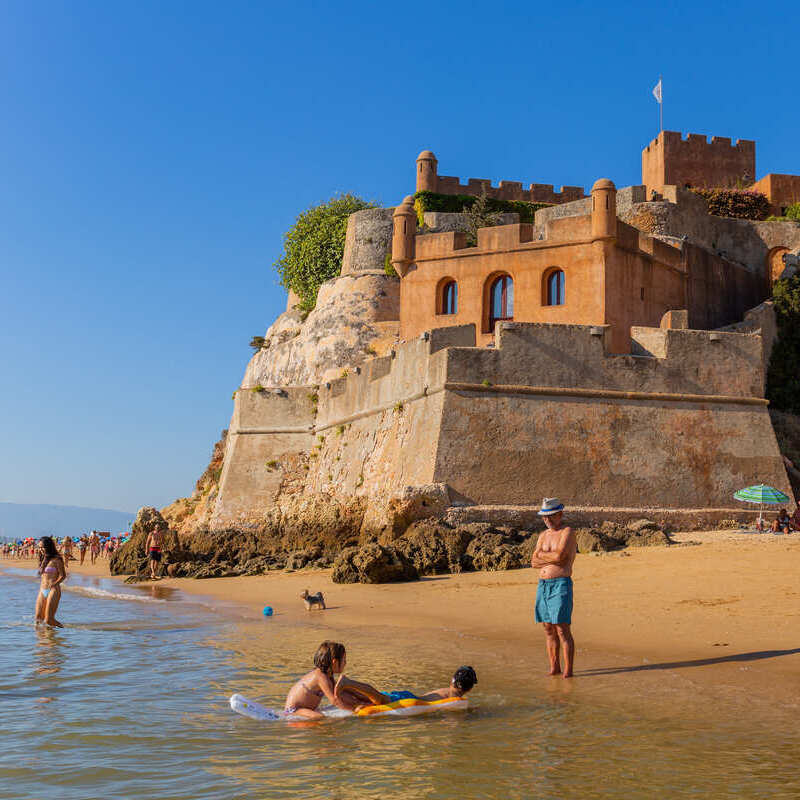

Before we delve into what’s a truly remarkable listing, you may be wondering what’s ‘The Algarve’. Unless you’ve spent some time studying a map of Portugal, you may be unfamiliarized with its regions, and as a professed Lusophile who’s explored the country extensively, allow me to enlighten you:
The Algarve is the southernmost region in mainland Portugal, a sun-kissed stretch of coast extending for roughly 100 miles, with beckoning golden sands as far as the eyes can see, turquoise waters lapping rugged shores, and postcard-ready cobbled towns perched atop small cliffs.
It’s been a popular holiday destination for Europeans for years, as it boasts summer-like temps as early as April, easily surpassing 77 degrees, and a highly-developed beachfront interspersed with resorts and centuries-old fishing villages.
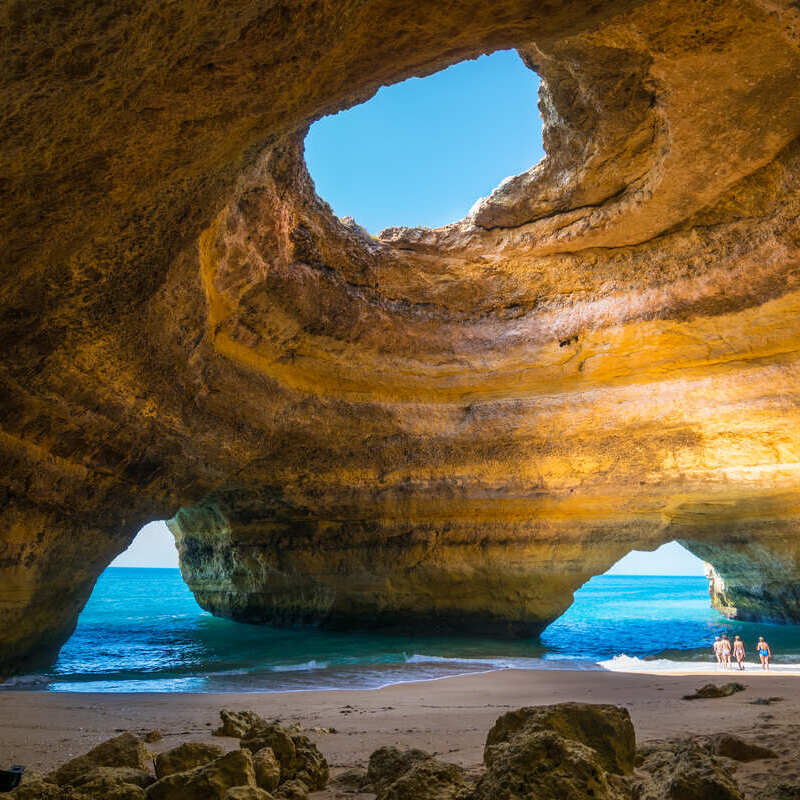

Unlike other parts of Europe, the Algarve is never exactly quiet, per se, as it is blessed with over 300 perfectly sunny days on average every year, and tourist services remain operational year-round, attracting visitors from colder, Northern countries.
Irrespective of season, rest assured there’ll be sunbathers dotting the sand in Lagos, wild swimmers braving the Atlantic waters off Portimão, and young revelers out in polo shirts, drink in hand, pub-crawling around Albufeira.
In the midst of it all, there’s stillness:
Outside
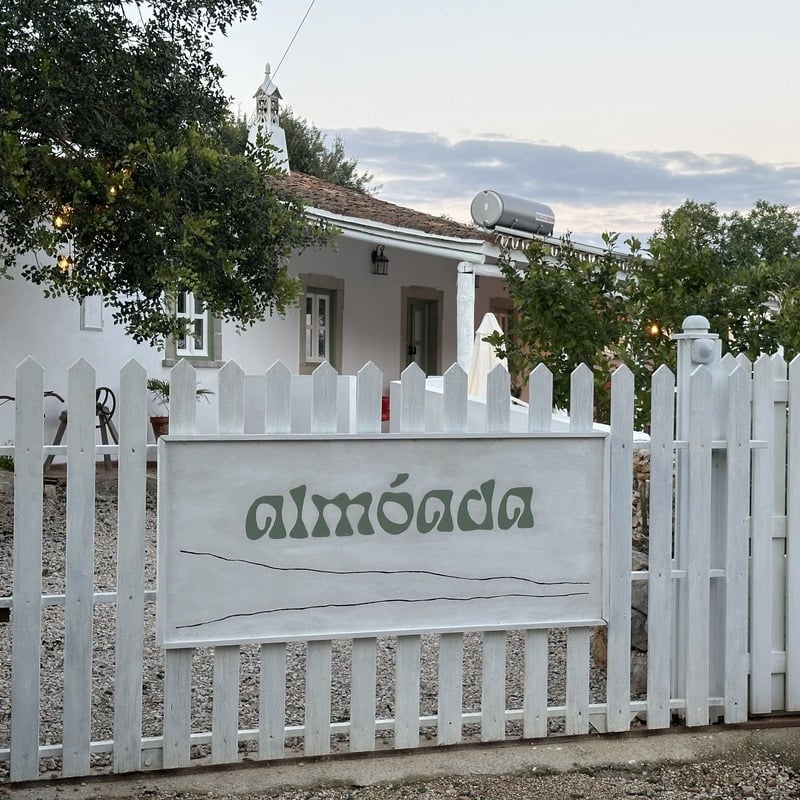

Surrounded by green and tucked away in the mountainous hinterland of the Algarve, São Brás de Alportel is not your typical resort town: there are no luxurious five-star hotels, bohemian back streets, nor any obvious landmarks that would make it to the Tourism Office’s travel brochure.
Still, it is home to Europe’s newest, and arguably most promising wellness haven: Almóada is a four-bedroom holiday villa welcoming eight occupants at a time, born out of an Algarvian couple’s passion for hospitality and 19th century nostalgia.
This is the culturally-charged Old Continent, after all, so why go for the a bare, lifeless hotel room when you can stay instead in a period house that was built brick by brick, and once belonged to a solitary farmer and his son?
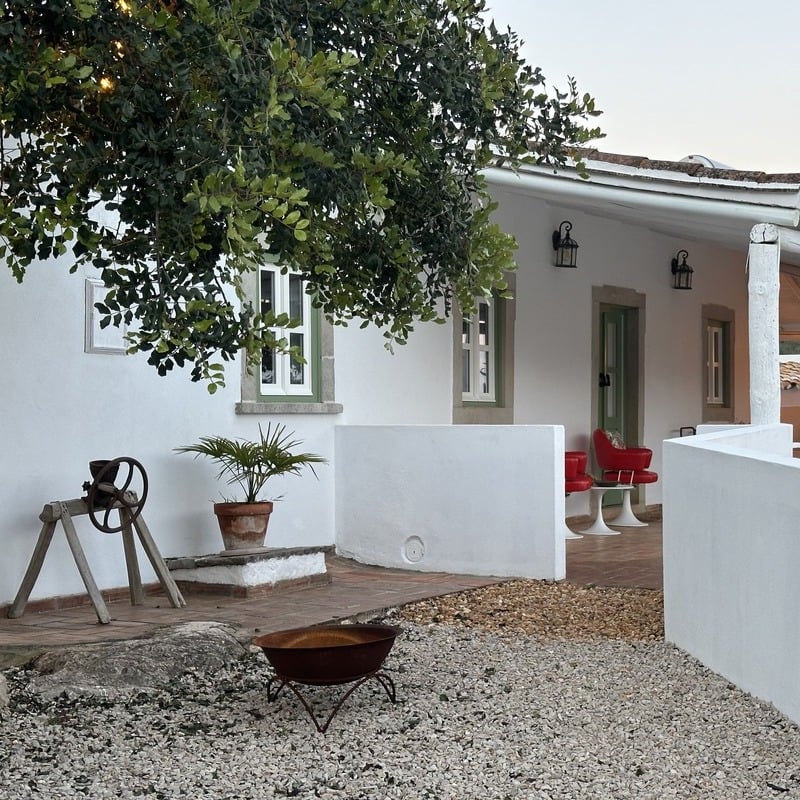

It may have been left in ruins upon the demise of that family line – countryside Portugal wasn’t exactly prosperous back when – but where the odd onlooker might have seen overgrown vegetation and decaying walls, the brilliant minds behind Almóada saw an opportunity.
Pulling up to the dirt road leading down to the house, a striking chalky white against a verdant landscape, I was immediately taken aback by how well-equipped it was, considering it rests on the outermost edge of a tiny village in a wider, predominantly rural province.
Unbolting the front gate, you will first lay eyes on a compact sunbathing area featuring an intimate, heated outdoor pool fed by a weeping fountain, cozy loungers under the shade of lemon trees, and even a hammock that swings over the crystalline waters.
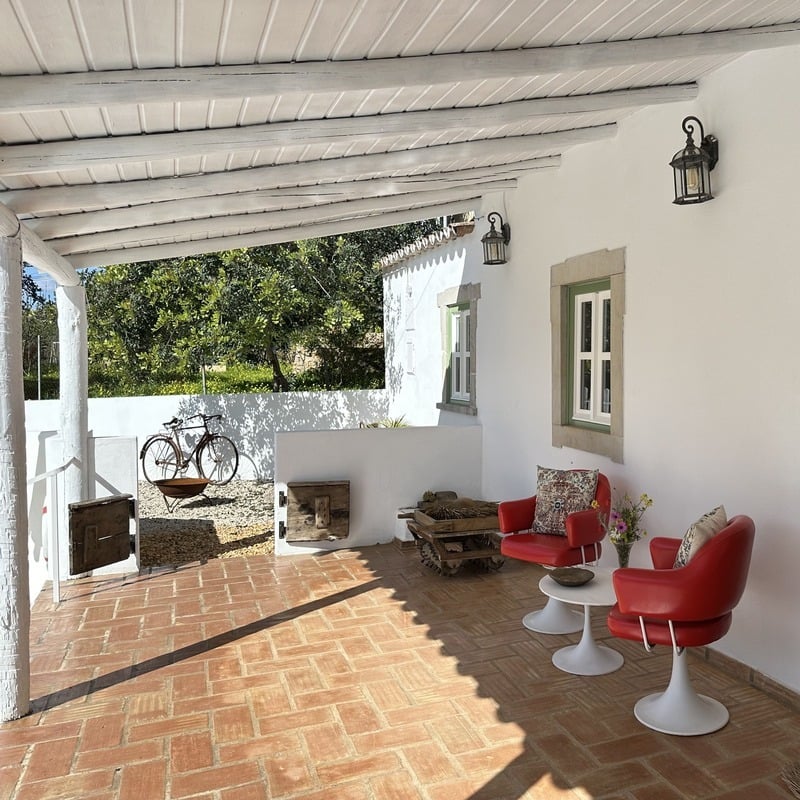

It adjoins the spacious veranda that laps around the house, leading to an ‘honesty’ bar, filled with world-renowned Portuguese wines and spirits, alfresco dining spots, and other relaxation areas, including a daybed that was sure to become my reading nook for the time being.
No noise, no traffic, only the gentle ruffling of the leaves.
Inside
Crossing the threshold, my focus was immediately diverted to the homespun, timeless feel of the interior: from the century-old dial phone and the neatly-carved wooden furniture, to the retro posters stuck to rammed-earth walls and the absence of a TV set, it exuded sophistication.
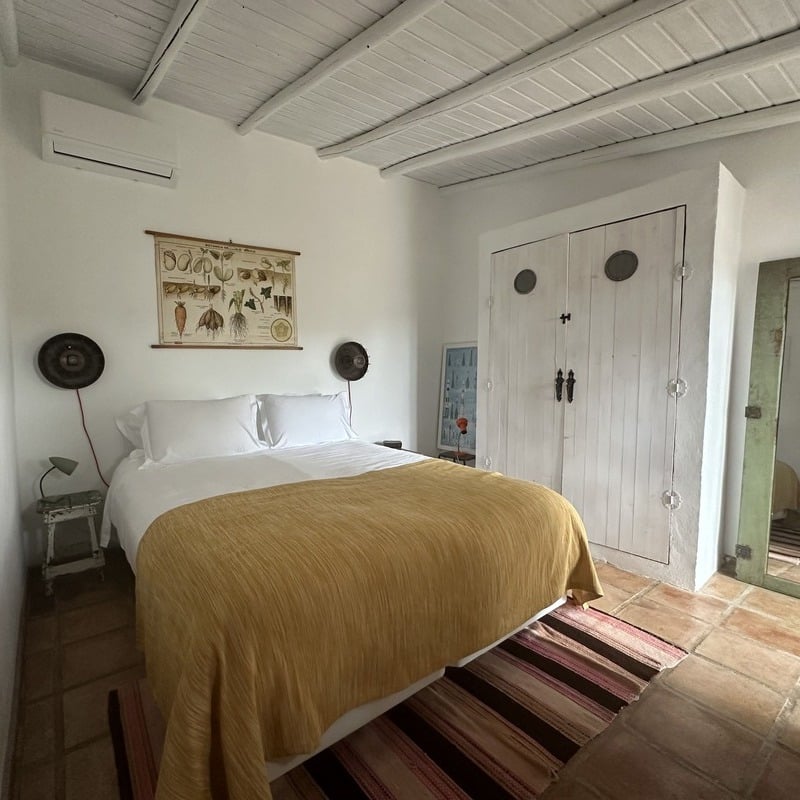

I’m no art buff myself, but I was deeply impressed by the fact that no interior designers were employed in bringing this place to life: the careful selection of Albert Jacob restchairs, industrial Jieldé lamps, richly-woven Moroccan carpets, and even their configuration is entirely the owner’s doing.
As stated previously, there are four bedrooms in the property, each of them coming with soft pillow-top mattresses of the kind you’d most commonly find in luxury hotels, and minimalist, bedside dim night lights that only add to the overall romantic ambiance.
The antiqued decoration follows you into the shower rooms – out of three in the property, two are en-suite – where there’s a number of well-storied heirlooms, including a tabletop radio with the unforgettable baskelite casing, vintage hardbooks, and melancholic Portuguese rag dolls resting on wall shelves.
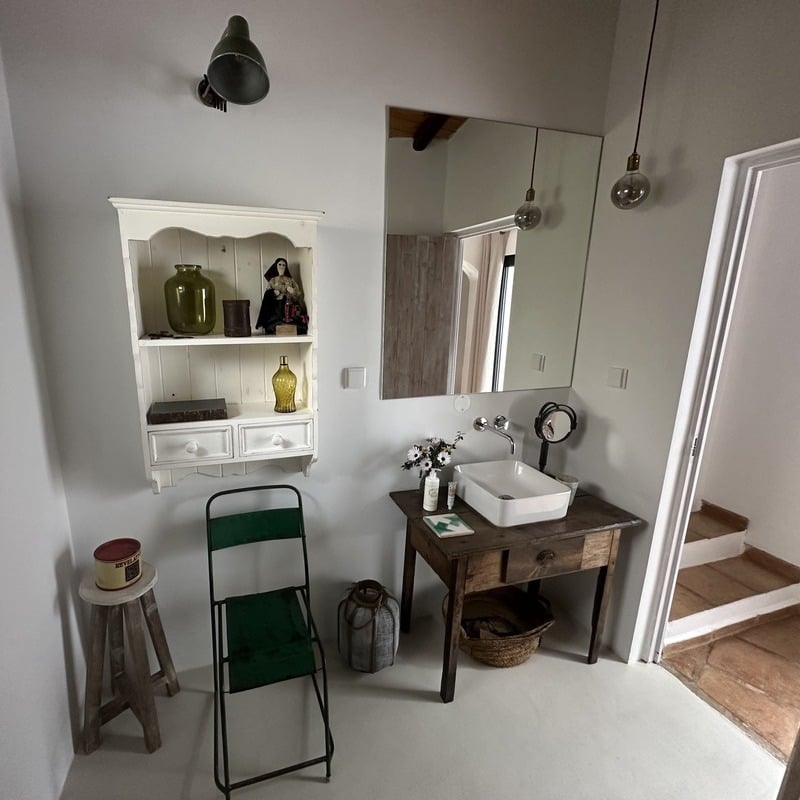

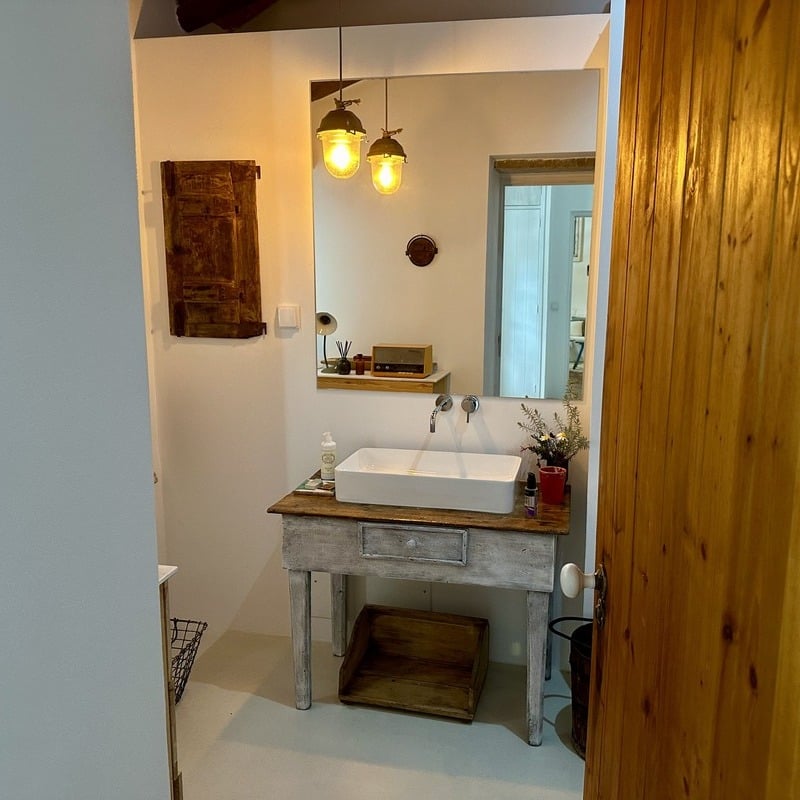

Despite the impressive attention to detail – many of the items look like they belong in some History museum – this is still an incredibly-modern holiday villa: the kitchen, however rustic-looking, is furnished with a toaster, kettle, microwave, and every paraphernalia kitchen frequenters need to have handy.
I was unaccompanied during my stay, and though I wouldn’t be doing any cooking myself when Almóada guests can opt for a private chef service (more on that in a minute), it was still nice knowing there are cooking amenities available if you’re looking for a more convivial atmosphere with friends.
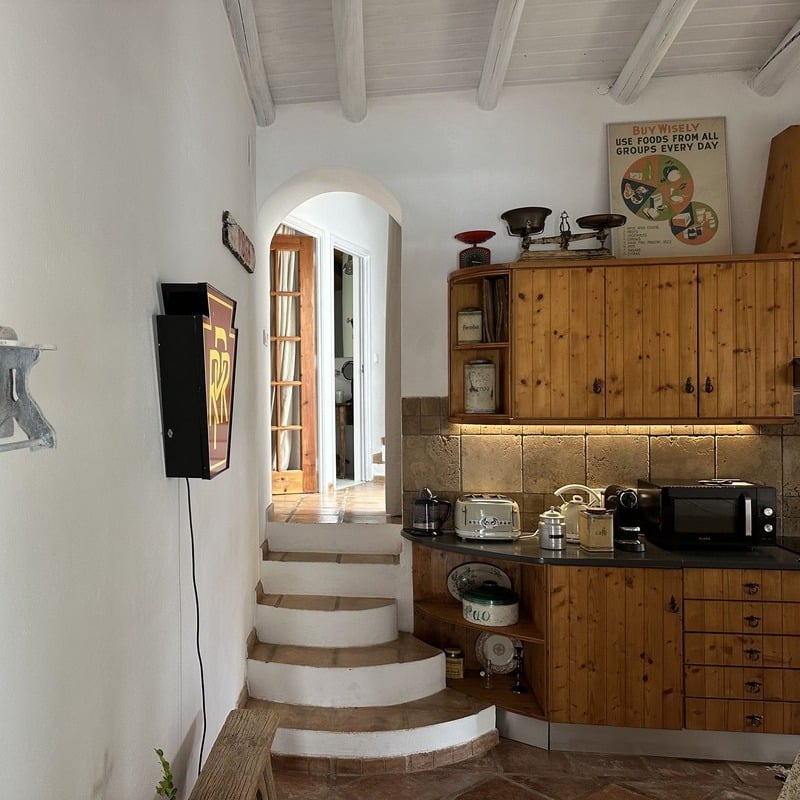

Portuguese Hospitality
Portugal is well-known for its hospitality, especially pertaining to Americans.
Contrary to the French, who can be somewhat dismissive of you, or Germans, who come across as blunt at times, the Portuguese will offer friendly smiles and go out of their way to ensure you feel right at home.
Needless to say, Almóada embodies that warm Portuguese spirit: it is first and foremost a family project, captained by Ricardo Beltran and his wife Cristina, two vintage aficionados who poured their hearts into making the house what it is today.
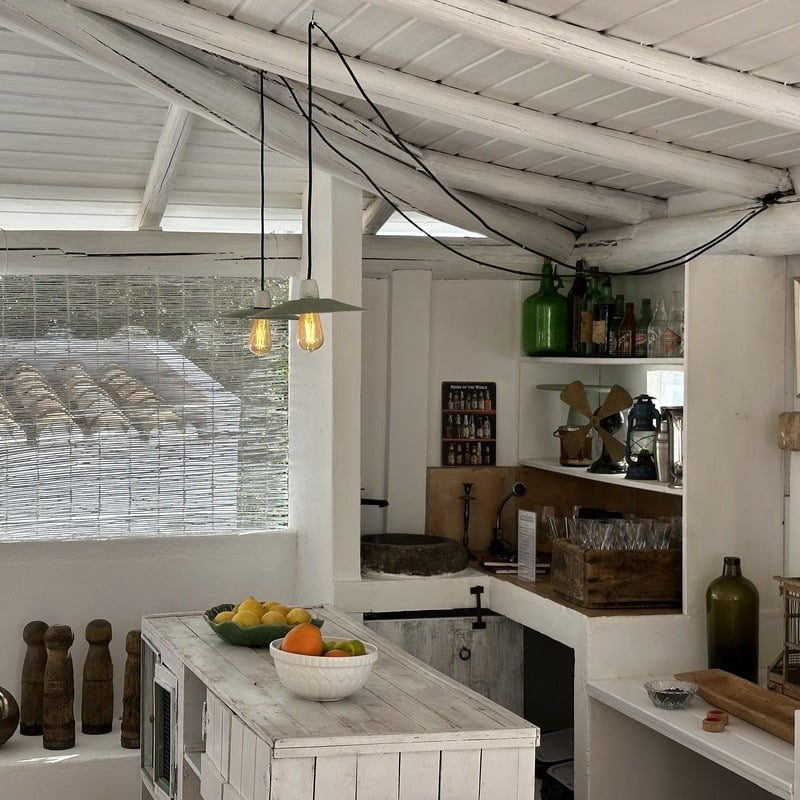

My interactions with them set the tone for the entire stay: not only did they keep in contact with me throughout the entire booking process, to ensure my needs would be met prior to arrival, they welcomed me to homecooked dinner and good-natured conversation on night one.
Ricardo and Cristina are well-versed, well-traveled, they speak multiple languages – their native Portuguese, English, French and Spanish, out of those I could count – and most importantly, they’re natural hosts:
I felt as if I was being greeted by long-time friends I hadn’t seen in yonks, yet at the same time, they spared no effort in making sure my needs were fully met before handing over the keys to their beloved house, as dictated by boutique hotel policy.
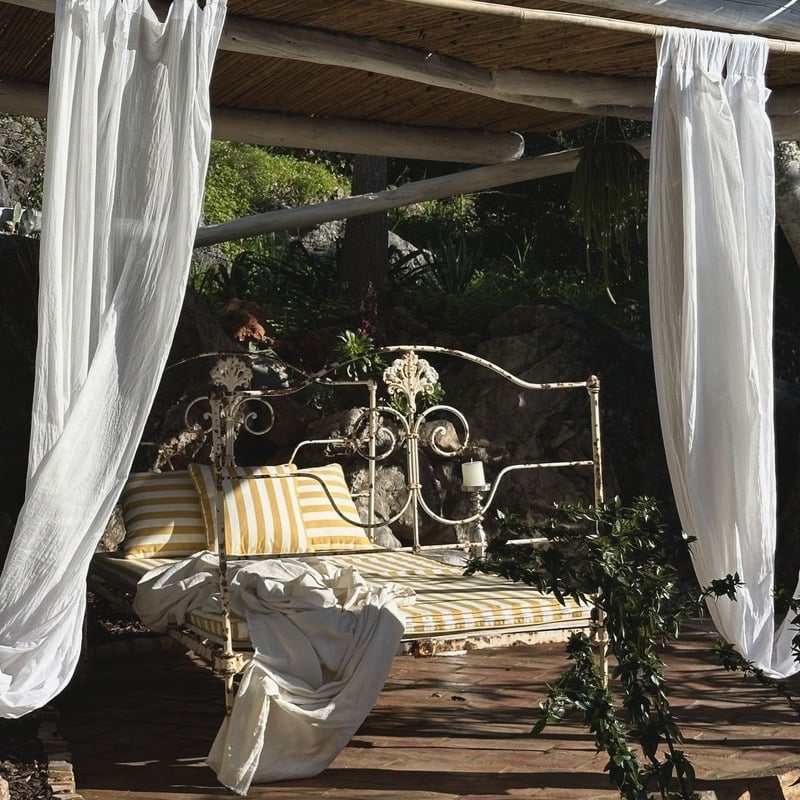

What Sets Almoada Apart From The Rest
I may have dropped a hint or two already as to why the Almóada is special, and while I haven’t had the chance to fully elaborate on that until now, the name of the listing itself should give you an idea: let’s just say it’s not called a boutique home for no apparent reason.
I’m a hotel guy through and through, but I do love booking private holiday rentals from time to time, mostly when I’m looking for complete quietness and privacy.
None of the smiling to strangers, exchanged pleasantries and restricted liberties.
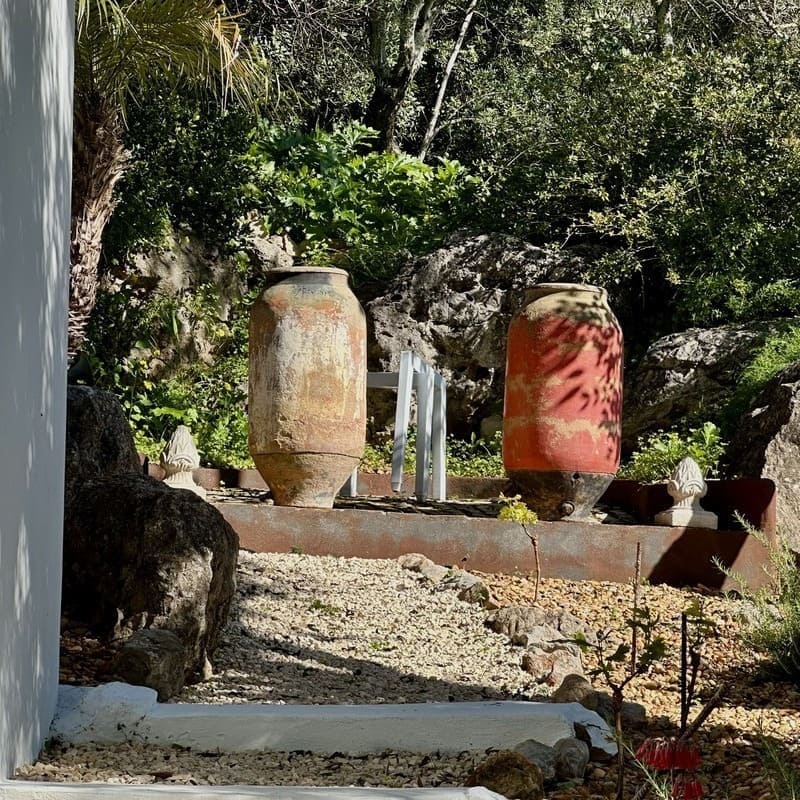

Swimming starkers in the pool, not having to moderate your singing, making full use of the amenities available without having to share, nor time your sleep as the breakfast room closes by 10 a.m. can feel quite freeing, particularly in a setting as tranquil as the Algarvian countryside.
What if you could have all that, and still get pampered, and the same standards of luxury and personalized service you would be offered in a boutique hotel?
Almóada is yours for the weekend, but if being left to your own devices feels too isolating, there’s alternative arrangements in place:
Idyllic Vibes With A Touch Of Luxury
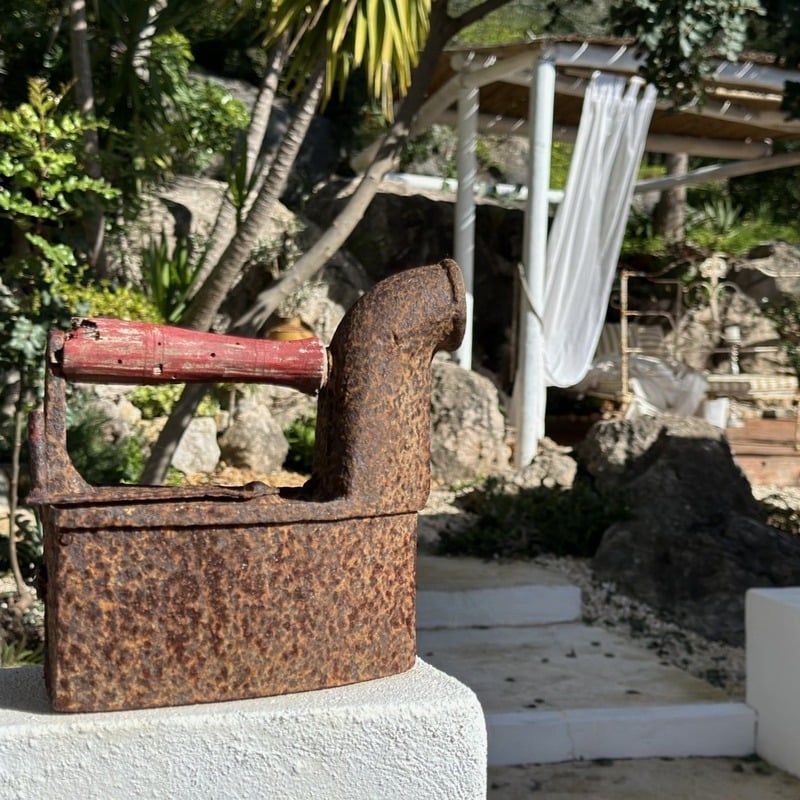

Can’t be bothered with the kitchen or ordering food?
You can have your own private chef who comes round to the house at pre-scheduled hours to cook for you.
Don’t fancy rocking up to town to get groceries for the weekend ahead? The Almóada concierge is more than happy to take care of that for you.
Missing spa facilities? Their wide range of massage services and tried-and-true therapies can help you release that built-up tension after another laborious year in the office.
Whether you’d rather have minimal contact with the Almóada team, only meeting them for check-in and check-out, or enhance your villa stay with a boutique service, they’re ready to accommodate your every preference and need.
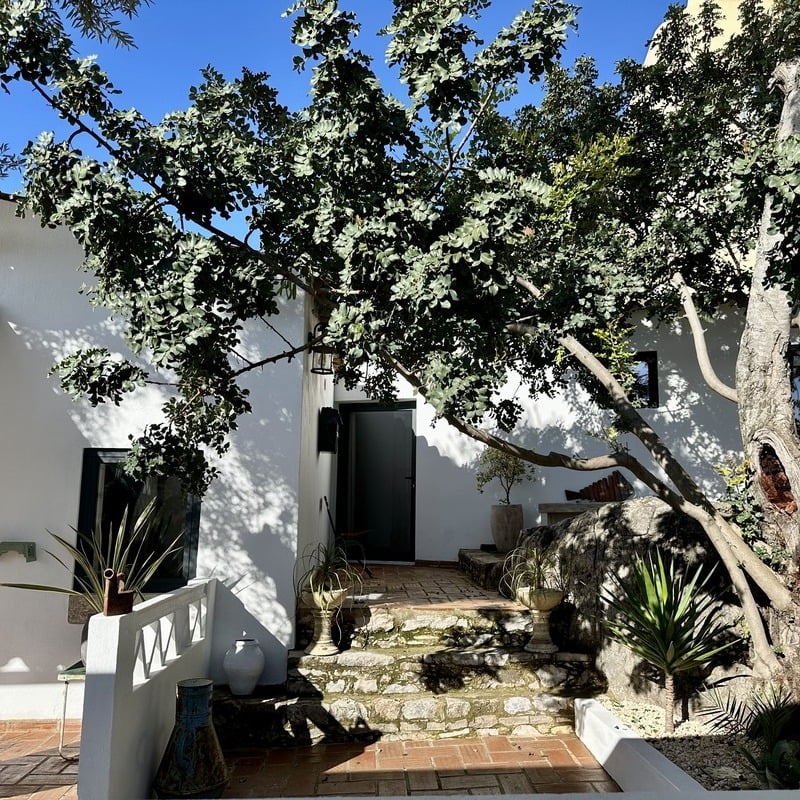

Your only job is to sit back and live your best Epicurean life.
Speaking of which, can we talk about the culinary triumphs concocted here?
UNESCO-Listed Gastronomy And Wine Aged In Clay Vessels
If you’re not yet sold on the nostalgic feel of staying in a renovated 19th-century homestead, but you’re a devoted foodie, perhaps Almóada’s gastronomy efforts could be enough of an incentive to book a prolonged stay.
At the end of the day, this is several-millennnia-old Europe, so of course local food would be cooked and presented in delicately-molded pans and tableware made out of black Bisalhães clay, listed by UNESCO itself as an intangible cultural heritage of Portugal.
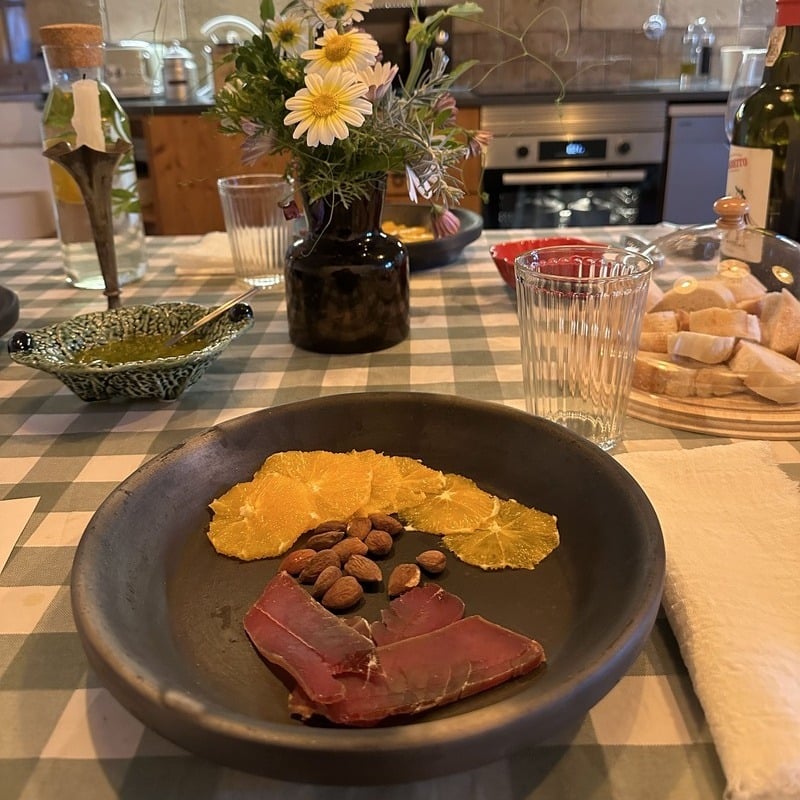

There’s just no fooling tastebuds, and as my host Ricardo explained to me the first night, the material helps keep the meal warm long after it’s out of the oven and preserves flavor, contrary to inexpensive utensils that often leave food with a tarnishing vestige of plastic.
Dinners at Almóada are season-based, as every ingredient is locally-sourced – none of the overprocessed stuff sold in Aldi – so it’s best to check in advance what’s on the menu before ordering a homecooked dish, but on my inaugural dinner, I was treated to:
A reinvigorating muxama salad, with sliced prosciutto of tuna harvested from the Algarvian coast, pesto and acidic local orange, which aided in cleansing my palate for the main course, slow-cooked, steamy seafood bean stew.
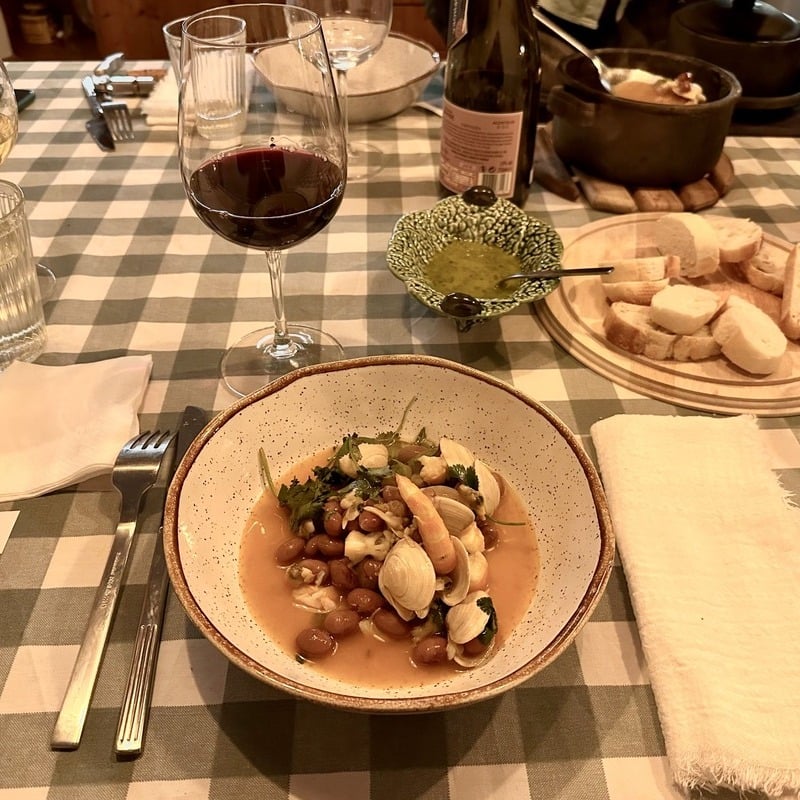

The full meal, from starter to dessert, was paired with smooth Portuguese wine you wouldn’t easily find in your local supermarket. No, sir: these ones are matured in clay vessels, a unique tradition exclusive to Portugal and Georgia (the latter of which is the actual birthplace of wine).
The true star of the evening was the carob cream with red fruits, granola, and a generous scoop of plain ice cream on the side. If you’re wondering what’s a ‘carob’, don’t worry, as you won’t be the first guest to be puzzled by this delicacy:
It may look like your regular açaí bowl, but the closest equivalent to carob, or how the Portuguese call it, alfarroba, would be cacao, except carob tastes richer, and it’s arguably a lot healthier than the stuff chocolate is based on.


I would sample carob again during breakfast in powder form, sprinkled over a bowl of curd. The early morning banquet is simple, but efficient: French croissants au beurre, Portuguese bread rolls, tropical fruits, a cheese plate and freshly-sequeezed oranges.
I wouldn’t be surprised if these were handpicked from gardens in the vicinity, though I wouldn’t know as it was already magically set on the table outside when I finally woke from my slumber.
Lie Back, Relax.
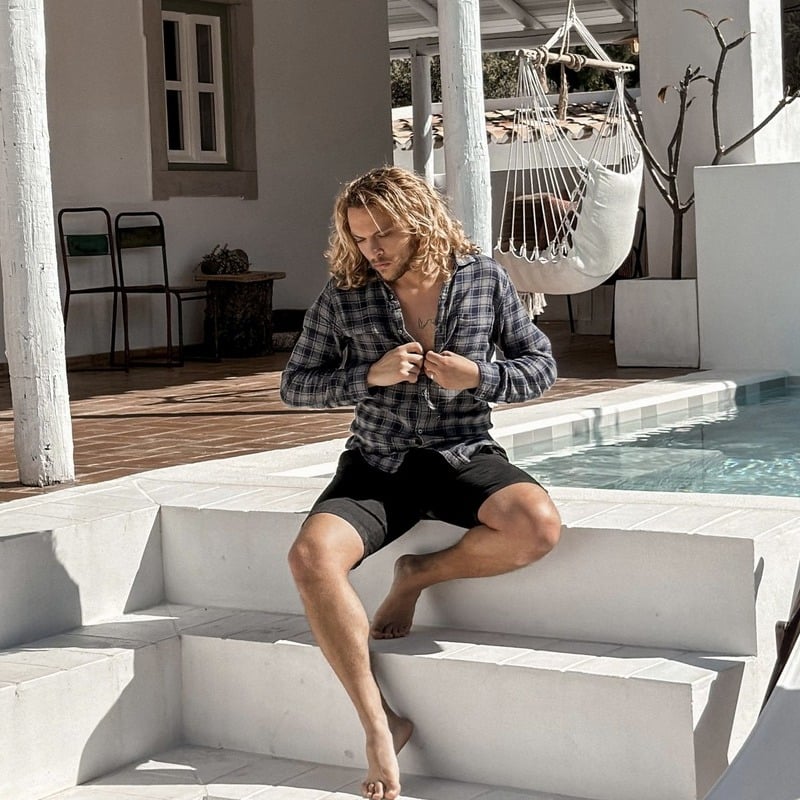

As the years have gone by, and my blogging-induced tech neck’s got worse, the prospect of massage sessions in the midst of leisure getaways has started to sound all the more appealing, and there was no way I was leaving it here without putting their holistic therapies to the test.
Through their partnership with the Carma Project, a clinic based in Faro, this holiday villa-boutique hotel hybrid has a rather exhaustive list of wellness products available to guests on demand, and the best thing is, you don’t need to leave the comfort of home to access them.
From facial aesthetic procedures to coaching to therapeutic rub-downs, you’ll have no trouble finding just the right treatment to complement your sojourn.
As a travel blogger with chronic back pain, I was immediately drawn to their highly recommended full-body massage.
I’m glad to say the masseur did not disappoint: she came round to the house on the scheduled time, and I was free to choose a location for the massage table to be set up myself, by the poolside, listening to the gentle trickling of the nonstop fountain.
By the end of the session, my back felt a lot less tight, and I could feel all those knotty muscles around my neck had been finally released. It goes without saying that night, I had my best sleep in weeks. 45 minutes that go by way too fast, and worth every extra cent.
The Town It’s Located In
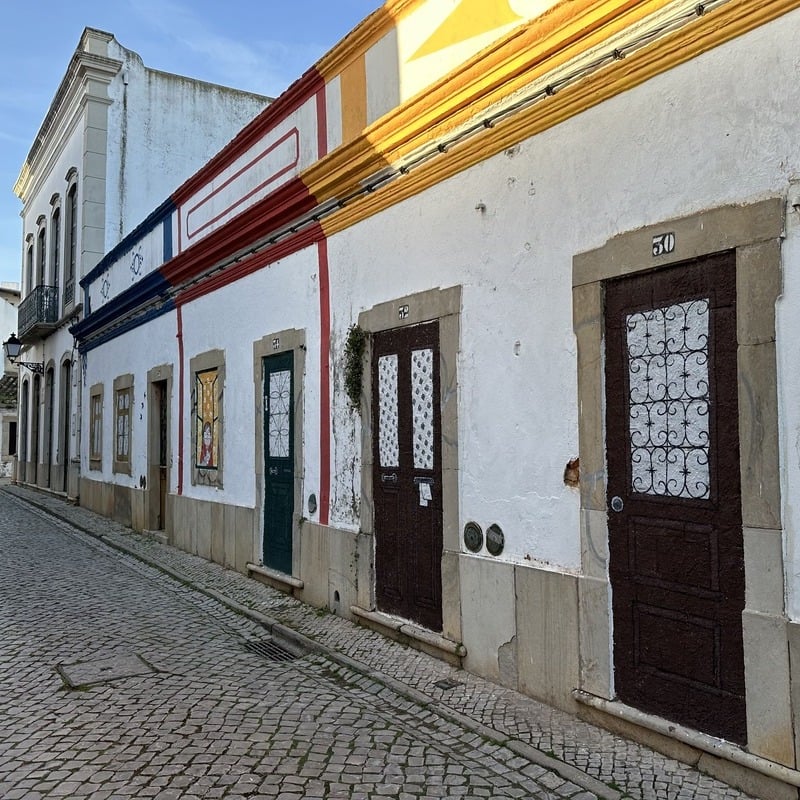

The Almóada sits on the outer edge of São Brás de Alportel, a laid-back town some 10 miles inland from Faro, the regional capital of the Algarve, and an equally-short 22-minute drive from Faro International Airport, where you’re likely to touch down first.
There are no beaches for miles nor a resort scene, but that does not mean it lacks cultural value: other than the numerous pastelarias serving Portuguese morsels and the camaraderie of locals, there are a couple of noteworthy landmarks within walking distance of the house worth seeing for yourself.
The Old Town is picture-perfect, with rows upon rows of low houses and the occasional ornately-tiled façade, and if you’re a History buff like me, you should probably know there’s a Roman road leading all the way to a hilltop 16th-century church.
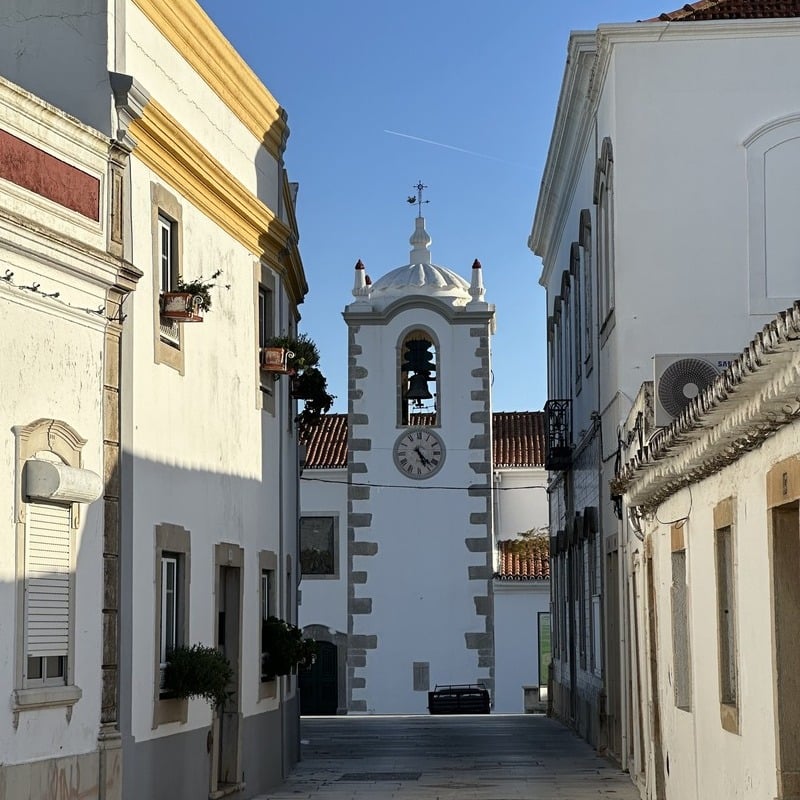

It’s called Calçadinha, Portuguese for ‘small pathway’, and it was once part of a larger system of roads that connected the city of Faro to Beja, in the north, back when the Algarve, and most of modern-day Portugal, were part of the Roman Empire.
There’s not much to see here, besides the thriving nature, but it’s still pretty cool to be able to say you’ve retraced the steps of Ancient Romans walking the 1,480-meter, partially-preserved steps.
As you might imagine, there’s not much of a nightlife in São Brás, and evenings are for chill walks around town or casual dinners in local restaurants, on nights your private chef won’t be around. In that case, I strongly encourage you to pay Sal da Serra a visit.
The Best Restaurant In Town
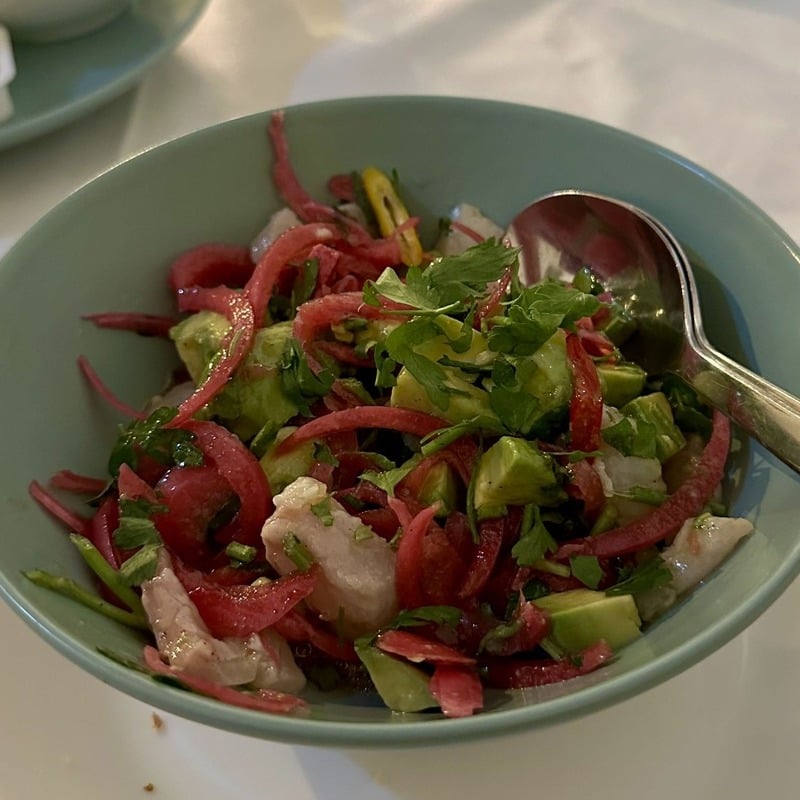

One of the hidden gems of the Algarve, this roadside, Iberian-style restaurant some eight minutes walking from the house serve the best dourada ceviche you’ll ever have, sprayed with Algarve lime, and only-moderately salted.
Their melt-in-the-mouth, sunk-in-olive-oil codfish, redolent of Portuguese tradition, is another must-try, and I was positively surprised by the lemon mousse. Not the most elaborate of desserts, but the creaminess of it was nothing short of delightful.
As I’ve learned, staying a couple of nights at the Almóada, sometimes simple, is best.
On The Downside…
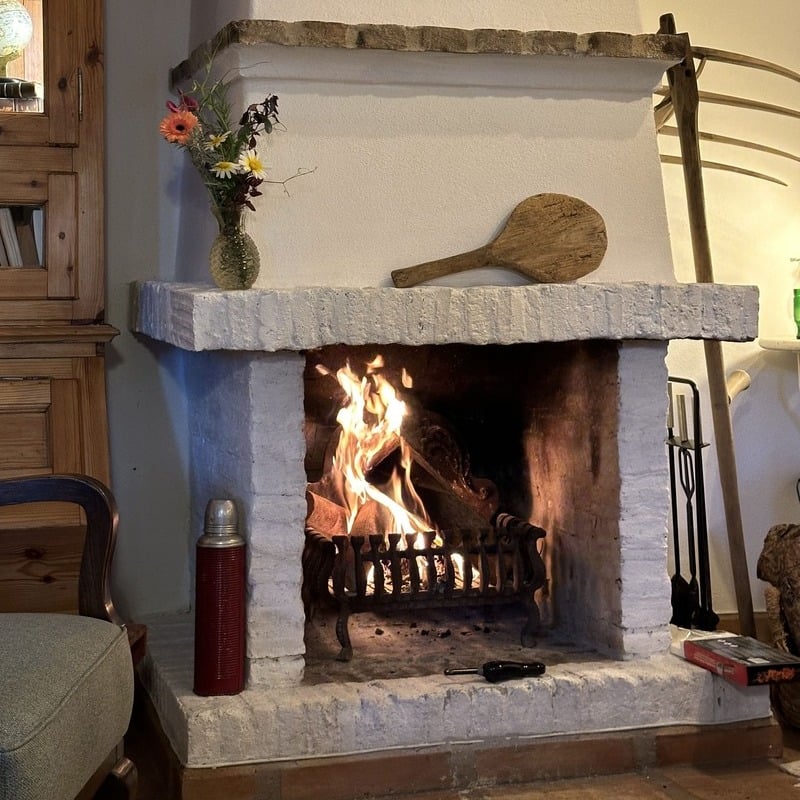

The main feature missing here is a TV, so there’ll be no binging of your favorite series, nor popcorn and movie nights if you’re coming with friends.
I get it, the Almóada is somewhere you go for blocking out the outer noise and experiencing that slow life in rural Portugal, and this is a deliberate choice of the owners to make it a more immersive experience, and it’s an inherent part of the concept, however…
Albeit somewhat distracting, late-night TV binging can be a great way to de-stress and connect with loved ones – I’ve shared some of my favorite moments with loved ones before a flatscreen watching silly rom-coms, or edgy, experimental horror films.
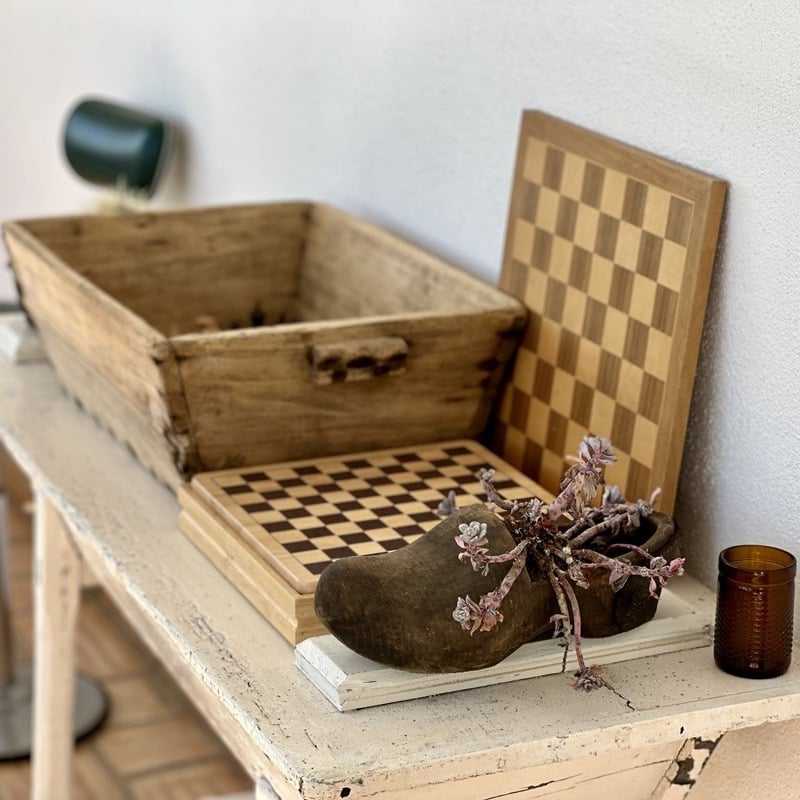

Then again, you’re unlikely to notice the house lacks a TV when there’s an ample selection of board games lying around, certain to keep kids entertained, a whole bookshelf at the convenience of readaholics, or you and your friends can always hit up the honesty bar.
Additionally, I noticed there wasn’t a clothing iron around in the house, as I suppose most guests are not traveling light like me, and squeezing all of their outfits in an 8kg, Ryanair-friendly underseat bag, though the Almóada team was quick to produce one upon request.
As I mentioned already, the Almóada is located in a non-touristy town of the Algarve, away from the overdeveloped coast. While that’s great for the odd crowd-wary traveler, if you’re looking for a more lively atmosphere, you may find the experience somewhat isolating.
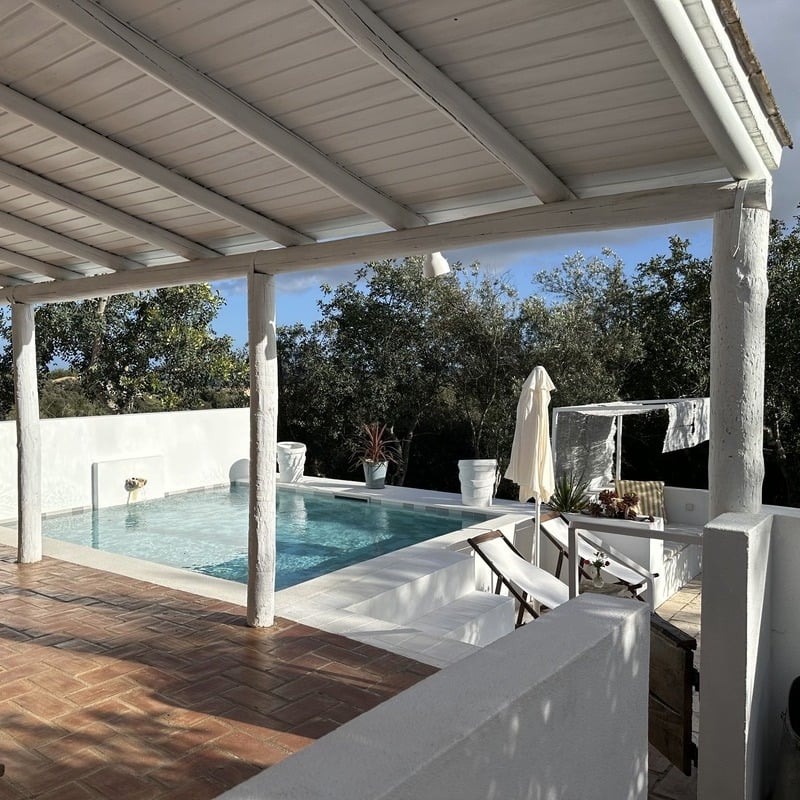

Not Your Average Tourist Town
The town it’s located in, São Brás de Alportel, is a modern municipality, with supermarkets, restaurants and a shop-lined central square – there’s even a fairly-decent Lidl – but don’t expect to find the same level of preparedness to host tourists as in Albufeira or Lagos.
If you’re not coming with a car, and you plan on seeing more than just São Brás de Alportel, you may find it challenging to get around. Unlike other municipalities in the Algarve, there’s no train station, and bus options can be limited.
There is still regular bus service between Faro and Loulé, the two largest cities in the vicinity, but they run on long intervals, and there may be some delay. If you’re still resisting renting a car, you can alternatively book a Uber.
They are surprisingly affordable in Portugal, and the ride from the airport or downtown Faro to São Brás will only set you back by a negligible $10 – $13 on average. From Loulé, the nearest major city, it’s an even cheaper $9 in off-peak hours.
Who Is The Almóada For?
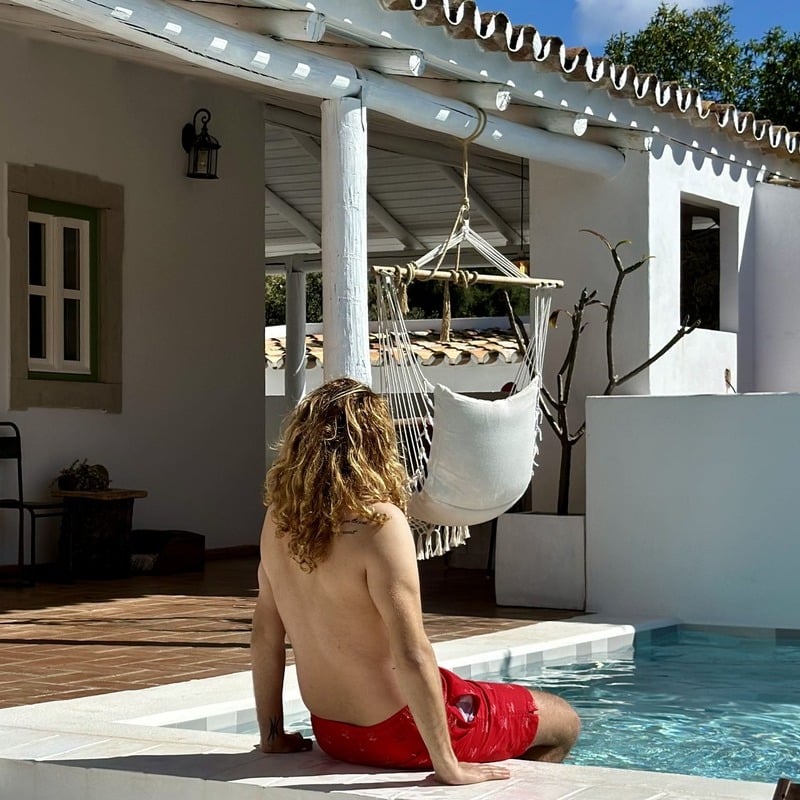

The Almóada caters to a diverse group of travelers, solo adventurers like me, who warmly embrace the associated recluseness and freedom of a villa retreat, but also families and groups of friends, and if the Homage Club, adults-only ‘secret’ room is any indication, even passionate honeymooners…
The only excluded demographic is children aged under 12. You know, you wouldn’t want the beautiful memorabilia to be damaged.
It’s ideal for a three-night to one-week stay, as it is in the heart of the Eastern Algarve, within short driving distance of all the main points of interest and the airport, and it may even serve as a temporary homebase for digital nomads.
As you’ve seen by now, São Brás de Alportel has everything you could need for a longer stay, and the fast, reliable Almóada WiFi will keep you connected, and your workflow uninterrupted if you’re booking the house for one to three-months.
How Much Does It Cost To Book The Almóada?
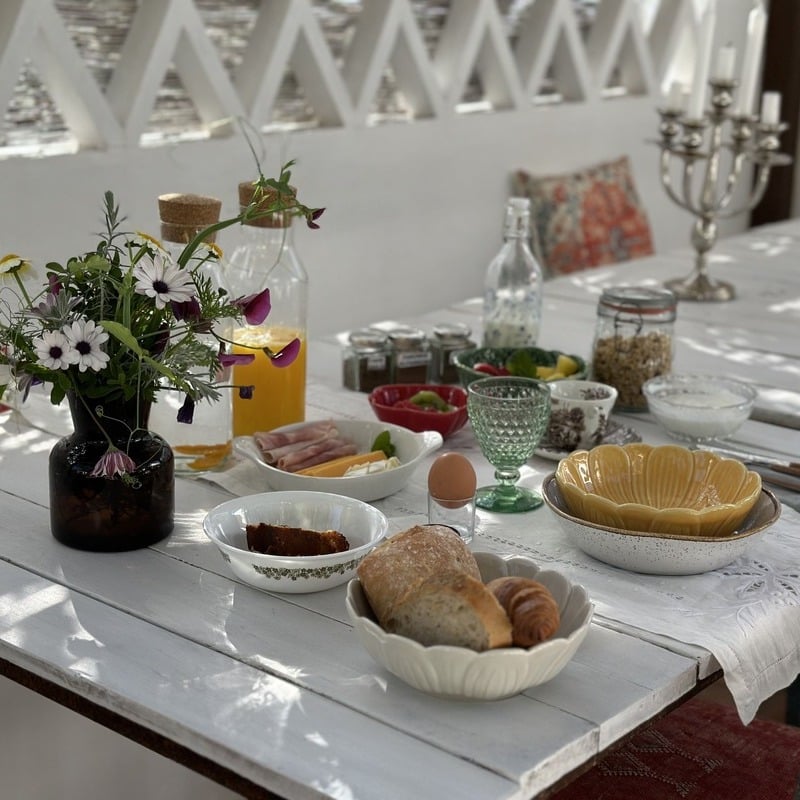

This listing is on the market for $250 per night this season, and that’s the maximum overnight rate you’ll be charged if you’re staying by yourself, but there’s no denying it is a far better deal if friends or family are tagging along.
The house has an 8-guest capacity, so when it’s full, each visitor will actually be paying a nearly-negligible $31.25. I’m talking thirty bucks for a luxury villa in the Algarve, with your own private pool and all these incredible amenities.
I know rounding up eight friends can be a challenging task when you have maybe three to four mates yourself. Still in that case, the nightly rate per person drops to only $62.50.
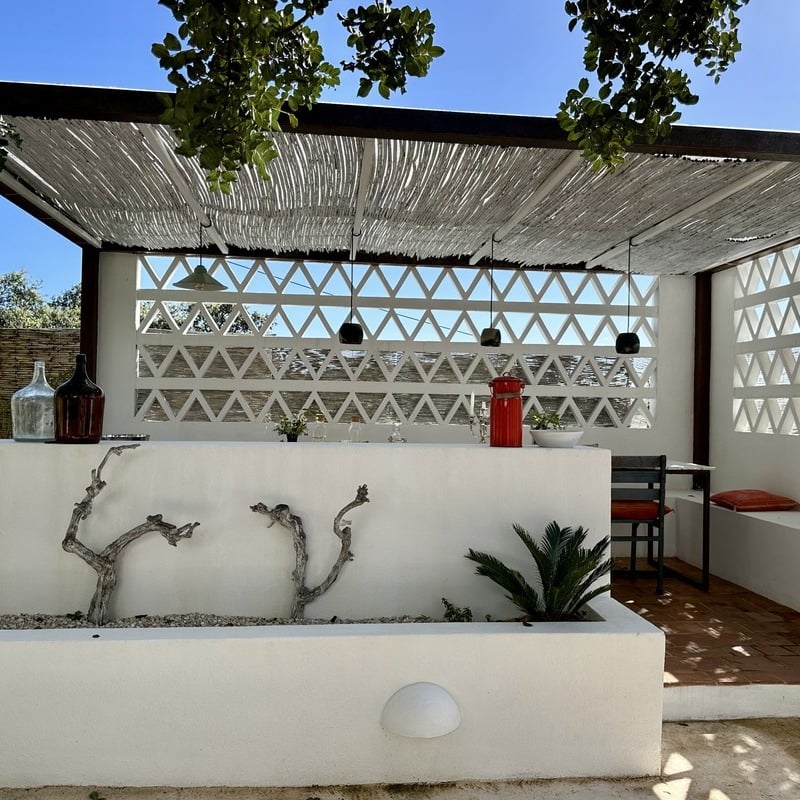

If it’s just you and your other half, you’ll be forking out an acceptable $125 each per night.
Quotations may vary depending on season, the types of services demanded – the private chef and concierge service are not included in the basic rate – and remember, each stay is completely personalized based on a guest’s every need.
It’s best to contact the team beforehand to make specific arrangements.
Either way, if you’re dreaming of an idyllic escapade to sunny Southern Europe, I doubt you’ll find another property with this much character and with better value for money than Almóada.
What To See And Do In The Algarve
São Brás is all lovely and picturesque, but there’s so much more to see in the Eastern Algarve, and trust me, you’ll want to extend your stay beyond just a couple of nights to get a proper feel of the surrounding province.
Out of all the fun things you could do, my four favorites were:
Go For Some Beer Tasting At Algarve Rock


Southern Europe is not exactly known for its varied selection of craft beer, even though a majority of tourists are heavy beer-drinkers, with Brits, Germans and North Europeans dominating in this precise demographic. Instead, wine is the law of the land.
You can imagine my surprise upon finding out one of the activities offered at Almóada is beer tasting at a newly-opened Algarve micro-brewery, where they serve dozens of unique beer flavors, blending the earthiness of ale and citrusy, Mediterranean undertones, and other unique combinations.
Their charcuterie plate with various types of cured ham and olives is a treat on the side, and if you’re a beer aficionado keen on learning more about the brewing process, there will most certainly be an enthusiastic member of staff available to give you a tour of the premises.
As for my favorite craft beers, I’d have to go for ‘Rasperry Goose’, the ‘Tiny Rhubarb’, and as odd as it may sound, the coconut-infused ‘Tino’s Great Escape’. Lucky you, you can always hoard up a few cans to get the party going back at the house.
Visit Beautiful Faro
Faro is the regional capital of the Algarve, and as it is a 24-minute drive from the village, there’s nothing stopping you from taking a day trip out to its walled historic center, traversed by narrow cobbled lanes that lead up to an imposing medieval cathedral.
Faro Cathedral was built in defiance of the city’s Moorish traits, and it’s stood for centuries as a symbol of Portuguese – and Christian – control over the land, that for many centuries, had succumbed to occupation by North African caliphates.
Other than the adorable Old Town, the most memorable thing about Faro to me was the Bone Chapel, a tiny oratory adorned by actual human bones, all four walls all the way up to the high ceiling: quite eery, perhaps distressing for some, but a striking sight nonetheless.
Get Lost In The Nature
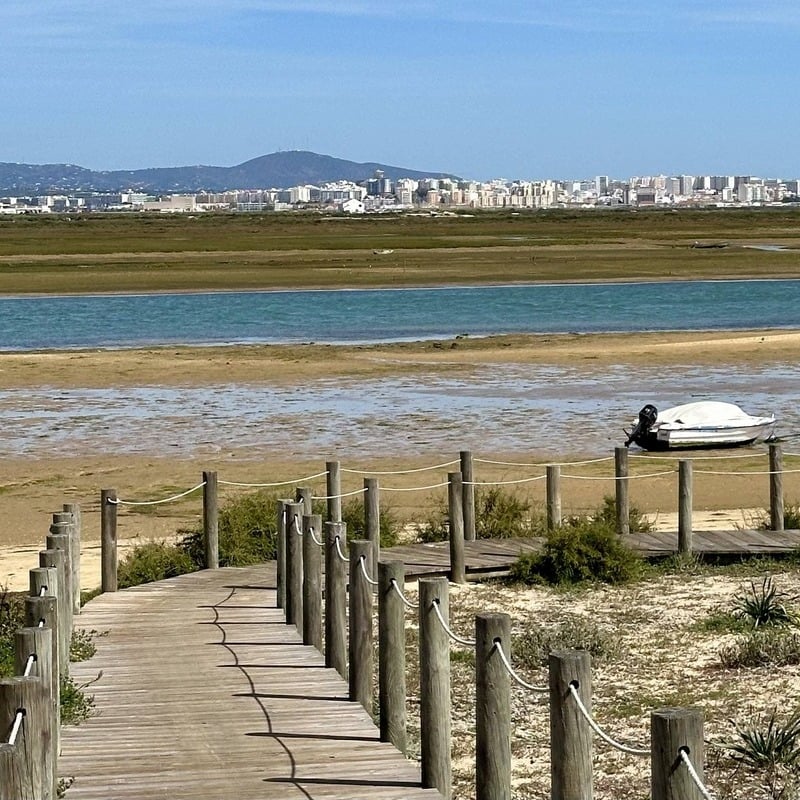

Driving east of Faro, you’ll immediately enter the Ria Formosa Natural Park, a nationally-protected coastal marshland dotted with islands, interconnected by small canals, and bounded by unspoiled sandy beaches that run for a whopping 37 miles.
If you’re a birdwatcher, you’ll be thrilled to know there are numerous rare species you can spot here, as it is an oasis for the Atlantic wildlife: white storks, the rare spoonbill, distinct for its long, spoon-shaped beak, and the showstopper Greater Flamingo.
For the odd naturist out there, some of the islands in the zone are even reserved for nudism, and can only be accessed with small boats, giving beachgoers a unique sense of exclusivity, tying nicely with your recluse Almóada escapade.
Stroll The Charming Medieval Streets Of Loulé
Though not widely promoted, the small inland city of Loulé, a 19-minute drive down the N2 from the villa, is just as incredible a cultural expedition, with its gorgeous fortress, erected in immemorial chivalric times, and labyrinthical Old Town.
As it does not straddle the coast, unlike Faro, Loulé sees very few tourists, despite its relatively large Medieval Fair in July, and a host of other season-based festivities taking place here, but then again, only those with an interest in the Middle Ages are likely to have heard of it.
Oh, and if in strolling around this charming municipio, you happen to walk past the Amendoal Pastelaria, make sure you head in and order yourself a slice of their pata de veado (deer’s hoof), rolled in shredded coconut.
You can thank me later.
Explore An Ancient Roman Archaeological Site
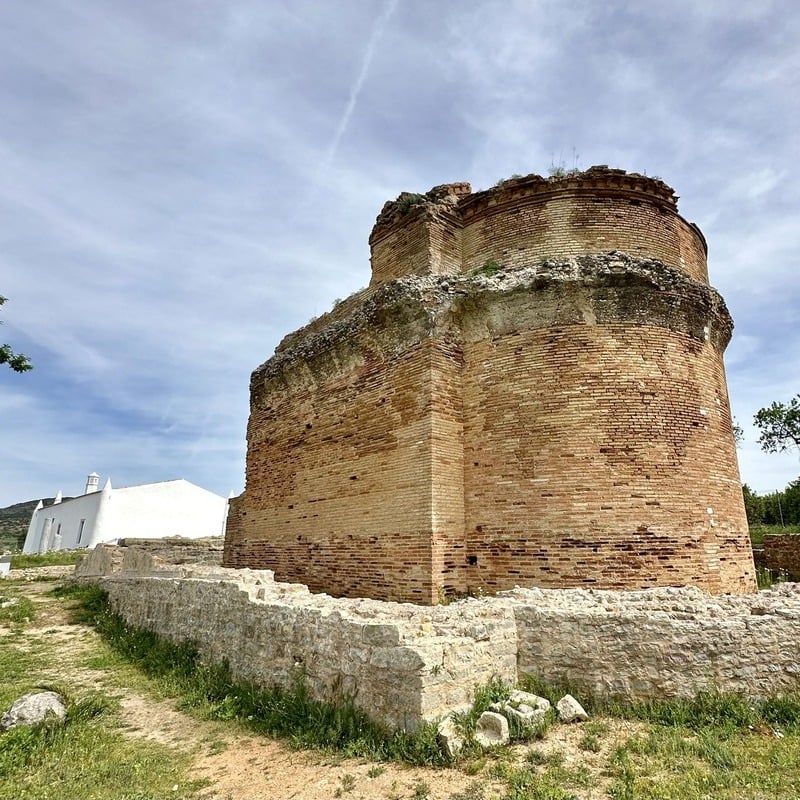

Can’t get enough of the culture yet? Some 5 miles south of São Brás, near the village of Estoi, you’ll stumble upon an important archaeological site called Milreu: it comprises the ruins of a 1st century Roman villa and an uninhabited medieval farmhouse.
What makes Milreu special is the fact that it serves as a window into life in a rural province of the once-vast Roman Empire, and even so, it did not lack resourcefulness or luxury: I was surprised there were pools, a gym, lush gardens now overtaken by weed and a temple.
Excluding the 16th century house built atop the previous Roman dwelling, with removed floors so the beautiful mosaics beneath them can be seen, this temple is the main attraction, and judging by its state of semi-preservation well into the modern age, it must had been really quite something.
The Algarve extends well beyond Faro and its surrounding points of interest, and we strongly suggest you do your own research in advance, and plan your itinerary based on your own preferences. This accompanying article is a good place to start.
Bottomline
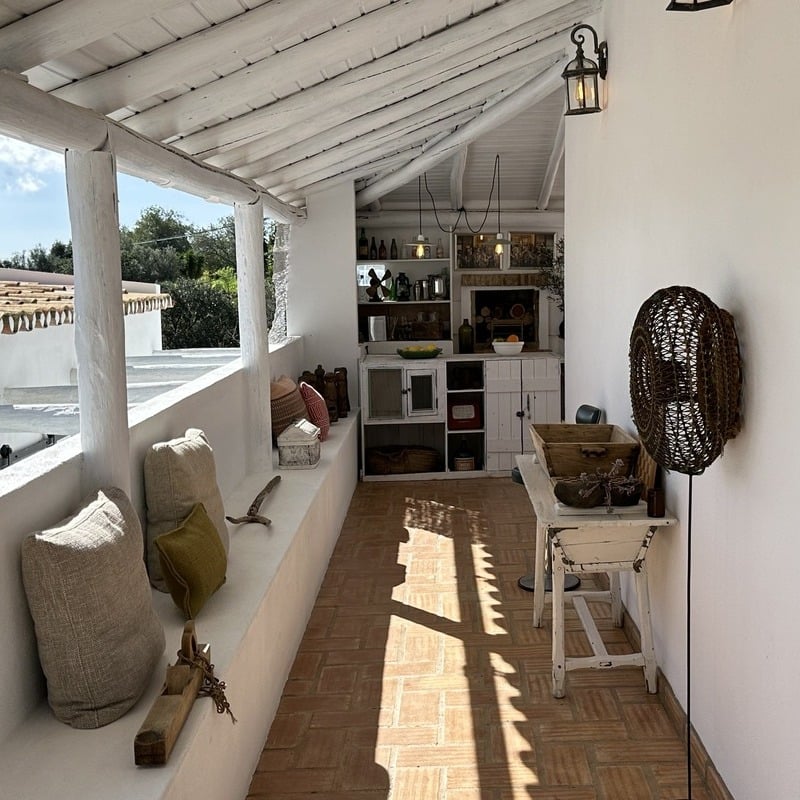

I can’t think of a better home base to experience the nature and ancient wonders of the Algarve than Almóada: yes, it is a little off-path, and the boutique service comes at an additional cost, but it does feel like home, as opposed to another unremarkable hotel devoid of soul you’re just crashing in.
To me, it felt like a safe haven nestled in the Algarvian hills, still within short driving distance of the beach and a number of historical sites, yet you get to kick it back, relax, and escape the hustle and bustle of the tourist-ridden coast all the same.
With their private homestay approach, without sacrificing comfort, and enhanced by a boutique hotel service, it’s almost as if the team at Almóada has cracked the code to the ultimate guest experience, and rest assured I’ll be back myself this summer.
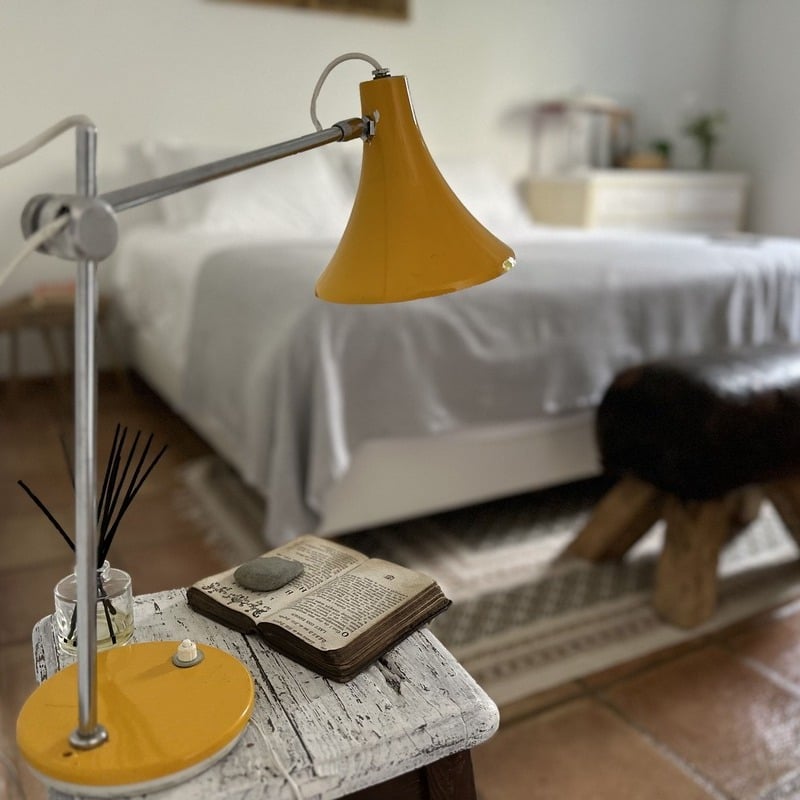

You can book your idyllic Almóada stay here.
You Can Fly Nonstop To The Algarve From The U.S.
Portugal hosts a number of nonstop Transatlantic flights from the United States, a majority of which will land in Lisbon and Porto, two of the country’s largest cities.
That said, in recent years, due to the surging demand for Portugal vacations, other secondary hubs have emerged.
We’ve had States-bound service launching from both the Azores and Madeira, two Portuguese archipelagos stranded in the middle of an azure Atlantic, and from this summer onward, it’s Faro’s turn to dip into that growing North American market.


Starting May 24, Americans can fly from Newark International straight to Faro, in the heart of the Algarve, without long, unnecessary layovers in Lisbon or Porto, with United Airlines, a total of four times per week, on a 176-seat Boeing 757-200.
Newark To Faro Flight Schedule
Outbound
It departs from Newark every Sunday, Monday and Wednesday at 9:50 p.m. local time, touching down in Southern Portugal at 10:00 a.m. the next morning.
Return
Returning home, every Monday, Tuesday and Thursday, Americans should expect to take off at 11:45 a.m. landing back in Newark at 3:05 p.m. local time, on the same calendar date.


One-way tickets start from $944, or only $84.15 in monthly instalments if you select uplift as a payment option upon checkout. For more information, head on over to United Airlines.
The Almóada is a 22-minute Uber ride from the airport, with fares ranging between $10 and $15 depending on the hour.
**Travel Off Path was a guest of Almóada, who helped with the creation of this itinerary by hosting some of our accommodations and attractions. Our opinions, recommendations, and suggestions remain our own.**
↓ Join Our Community ↓
The Travel Off Path Community FB group has all the latest travel news, conversations, and Q&A’s happening daily!


SUBSCRIBE TO OUR LATEST POSTS
Enter your email address to subscribe to Travel Off Path’s latest breaking travel news, straight to your inbox.
This article originally appeared on TravelOffPath.com
Opinions expressed here are the author’s alone, not those of any bank, credit card issuer, hotel, airline, or other entity. This content has not been reviewed, approved or otherwise endorsed by any of the entities included within the post.



